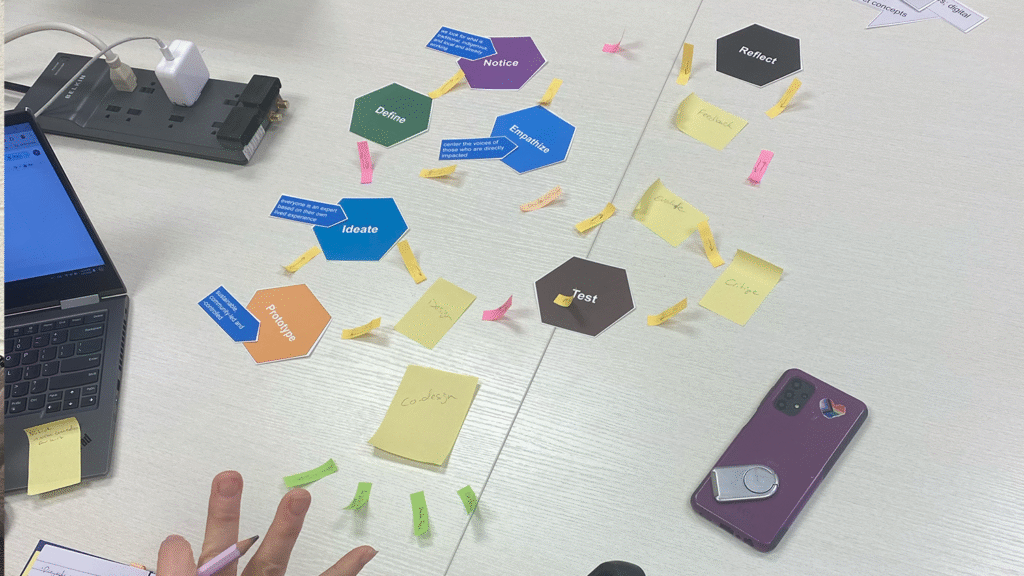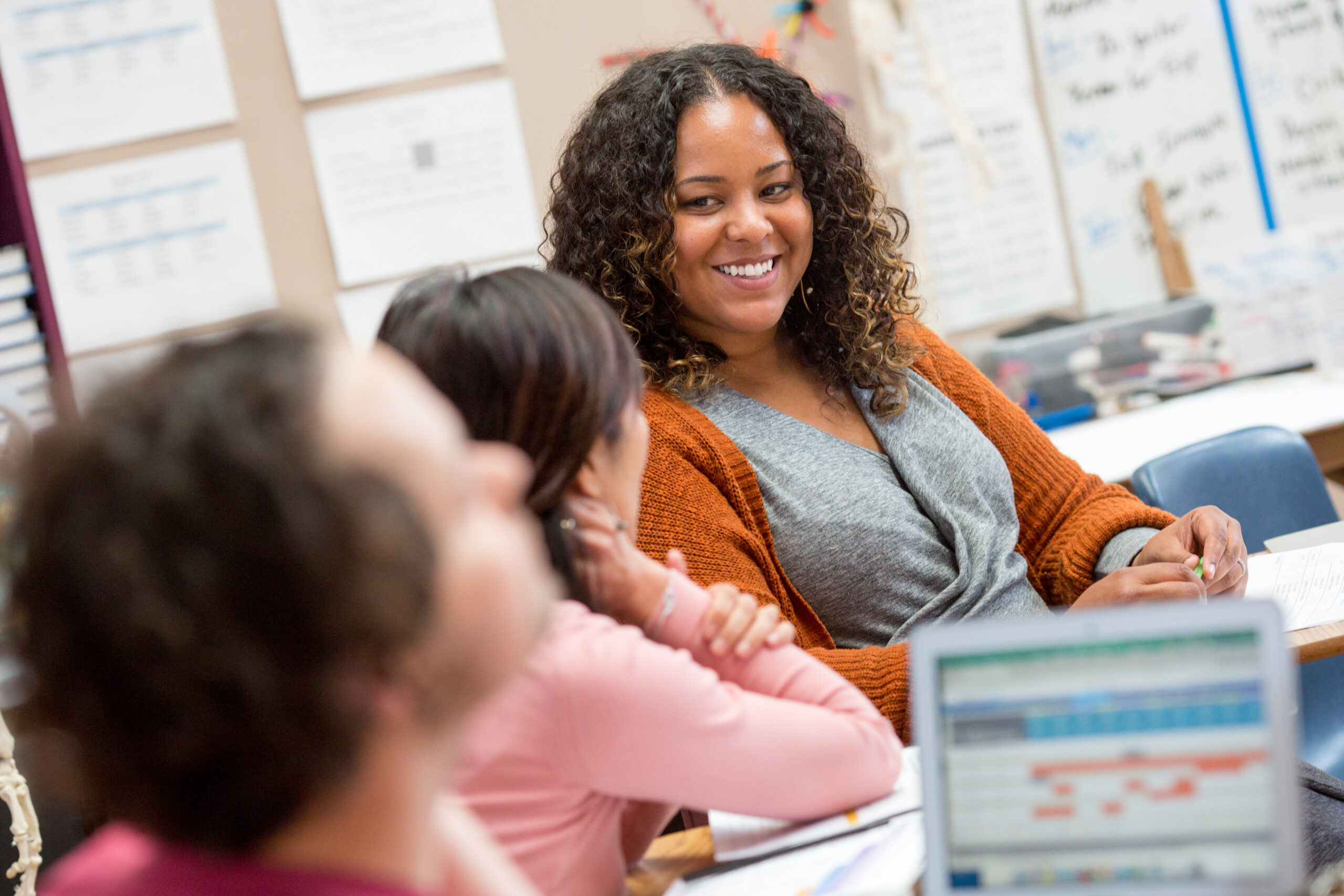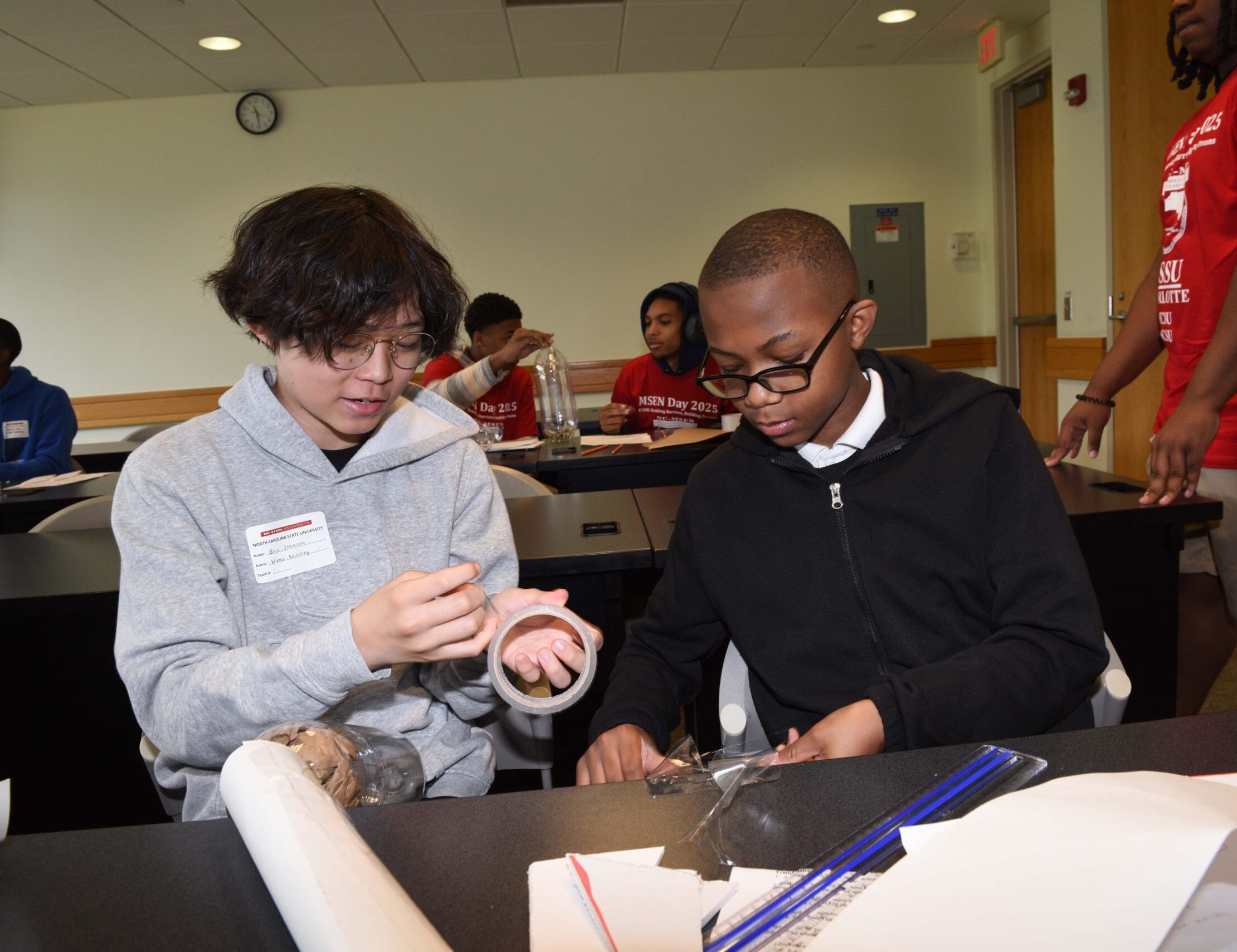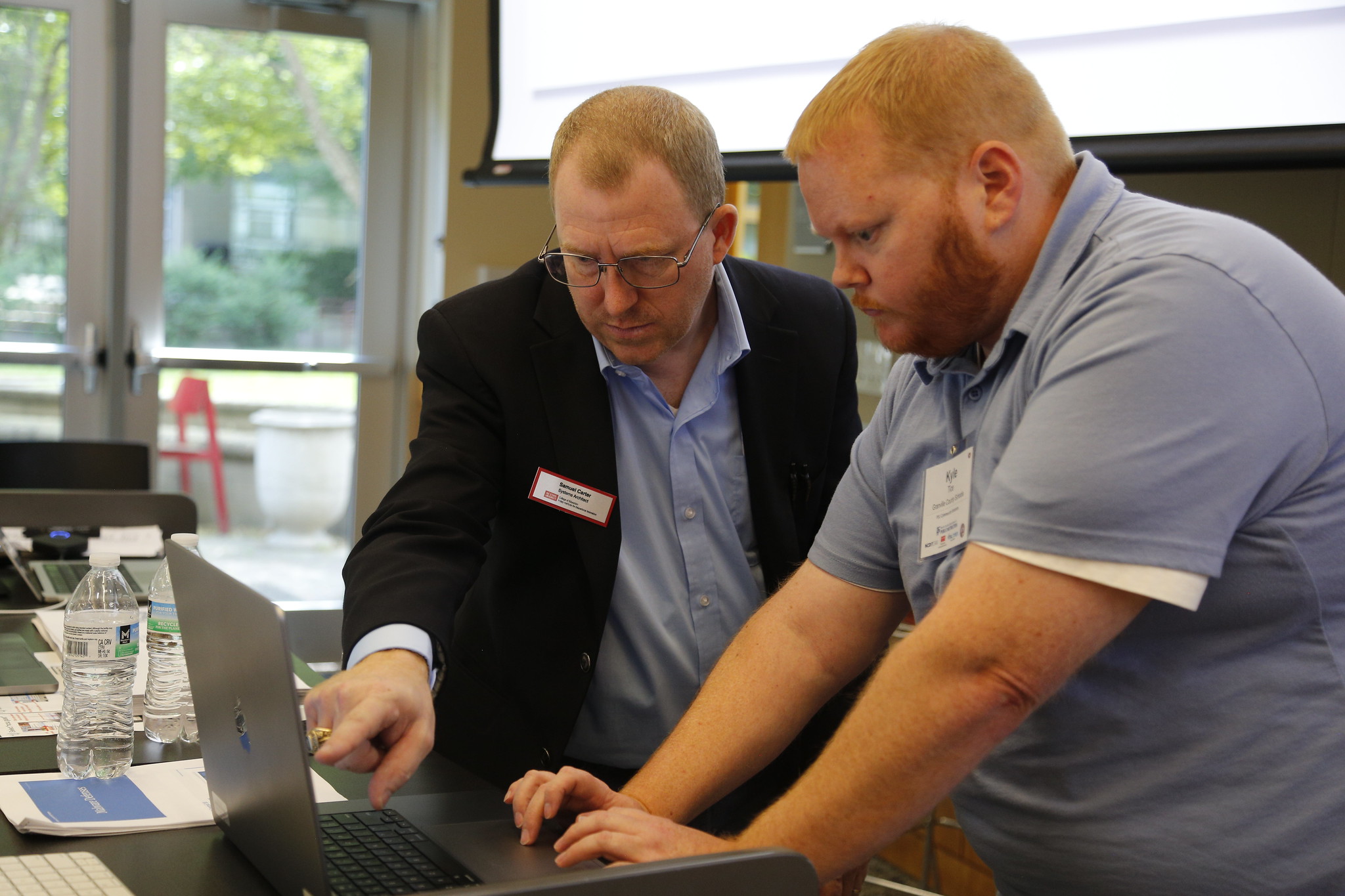FLIP-STEM Interdisciplinary Hub Centers Student Experience, Agency through Rural Workshops
Over the past year, the members of the Fostering Learning, Identity, and Participation within Science, Technology, Engineering, and Mathematics (FLIP-STEM) interdisciplinary hub have seen firsthand the way middle school students thrive when given agency over their learning.
FLIP-STEM is one of four Interdisciplinary Research Hubs in the NC State College of Education established to find innovative solutions to pressing educational problems by bringing together individuals from different units and disciplines. FLIP-STEM aims to center middle school students’ knowledge and experiences in technology design and development while incorporating a data science focus to explore how students’ experiences, interests and knowledge can be transformed into meaningful datasets for investigation.
“When given the opportunity to explore real data, make decisions that mattered to them and share their ideas in creative ways, [middle school students’] engagement shifted dramatically,” said Friday Institute for Educational Innovation Research Scholar and hub member Amy Walter. “We saw this especially when students created their own data stories or investigated questions that connected to their lived experiences.”
Over the course of several months during the Fall 2024 and Spring 2025 semesters, FLIP-STEM hosted five workshops in informal educational settings in rural parts of North Carolina.
- The Community Building Kickoff workshop allowed middle school student participants to meet facilitators, explore identities and become acquainted with the idea of how data connects to their lives.
- The Focus Groups and Data Stations workshop centered around the understanding of middle school student perspectives, with facilitators learning about students’ experiences, interests and ideas as well as their understanding of community. Middle school students also engaged with data through a portrait name tag project.
- The Place-Based Exploration and Data Storytelling Foundations workshop saw middle school students exploring data pertaining to a location in Goldsboro, North Carolina, and addressing a situation that involved choosing which voices could be included in a community decision making process.
- The Community Investigation and Generating Data-Driven Questions workshop enabled middle school students to look at community datasets and identify impactful data points — including transportation, food access, safety and education — as well as practice asking questions around themes to make data-informed decisions about their community.
- The Designing Investigations and Exploring Data Tools workshop allowed middle school students to utilize tools like spreadsheets, basic coding platforms and mapping applications to make recommendations and create participation in data-driven decision making. Students also shared data findings through a presentation.
Briana Trager, a doctoral student in the College of Education and student affiliate with the hub, said that as the members of FLIP-STEM built out programming for participating middle school students, they continually made adjustments — incorporating student feedback, reflecting on student engagement and facilitation strategies, and meeting all students’ needs.
“We wanted to acknowledge that, when creating programming for students, it is difficult to plan everything up front before knowing your audience. So, we were intentional in setting aside time between each session to make adjustments as needed while staying true to the core goals,” she said.
“While the kids could not actively plan with us in between workshops, we worked to ensure we used our experiences with them to help make sure they felt like the project was relevant to them and their own experiences,” said College of Education doctoral student and graduate research assistant Bruce Graham, a student affiliate with the hub.

Working with middle school students over the course of several months through these workshops, team members also said they learned the importance of balancing structure with flexibility. Although it was easy to fall into traditional practices of the classroom during sessions, facilitators had to push themselves to think outside the box.
They found that, during the sessions where adults took a step back and left more room for middle school students to take ownership of their learning, student participants stepped up as leaders and group participation deepened.
“We’ve recognized the value of being intentional about our roles. Too many adults in the room can unintentionally take up space,” Walter said. “We’ve worked to be clearer about … when to step in and when to step out of the way. Sessions that made space for students to connect data to their communities, whether through mapping, community interviews or storytelling, also had a noticeably different energy.”
As facilitators continued to support student agency in sessions, students confidently took the lead in data storytelling, community investigation and presentation of their findings, and they learned to ask meaningful questions about data investigations and follow through with analysis of their results.
Some students, Trager said, were so enthusiastic about the work that they continued to work as dinner began during one session, and at least one student shared with facilitators that she wanted to continue the work begun through FLIP-STEM at home.
“Our hope with this programming was that students would walk away understanding that data is a part of everything that we do and can be a valuable asset in creating change and impacting our community,” Trager said. “We hoped that throughout these sessions, they will expand their understanding of data beyond just numbers and graphs to see the more authentic use of data, as a way of understanding the world around us, making impactful decisions and centering the voices of those impacted by these data-informed decisions.
As FLIP-STEM hub members look ahead to the next year of work, they are focused on the sustainability of the program and the possibility of transferring ownership of some parts of the facilitation process to local partners who can keep the work going. Additionally, they aim to extend the work into other rural communities through expanded, place-based camps that will connect hub principles to data science through an expanded network that leverages community strengths.
“I think the main take away for me is that we continue to work on how we can design with – as opposed to for – students to plan expanded programming that connects data science to personally, locally and culturally relevant questions,” said hub member and Professor of Mathematics Education and Special Education Jessica Hunt.
A full list of Fostering Learning, Identity, and Participation within Science, Technology, Engineering, and Mathematics (FLIP-STEM) hub members includes:
- Professor of Mathematics Education and Special Education Jessica Hunt
- Friday Institute for Educational Innovation Executive Director and College of Education Associate Dean for Translational Research Krista Glazewski
- Friday Institute for Educational Innovation Research Scholar Amy Walter
- Data Science and AI Academy K-12 Data Science Coordinator Taryn Shelton
- Student Affiliate Bruce Graham
- Student Affiliate Briana Trager
- Friday Institute for Education Innovation Research Scholar Russell Dirgo
- Assistant Professor of Mathematics Education Samantha Marshall
- NC-MSEN Pre-College Program Director Braska Williams
- Data Science and AI Academy Executive Director Rachel Levy
- Categories:


